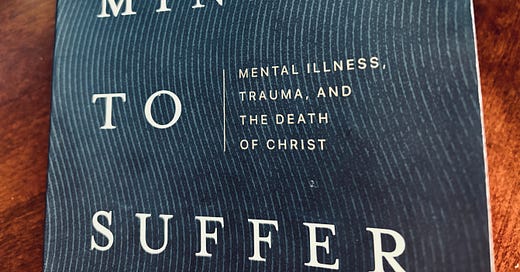Following Jesus in the Desert of Mental Illness
John Andrew Bryant's "A Quiet Mind to Suffer With"
This is entry #2 for our summer reading club. You can find the first entry, on Hartmut Rosa’s The Uncontrollability of the World, here.
Keep reading with a 7-day free trial
Subscribe to Digital Liturgies to keep reading this post and get 7 days of free access to the full post archives.



